September 13th: We started by grabbing breakfast at the bakery near the bus station.
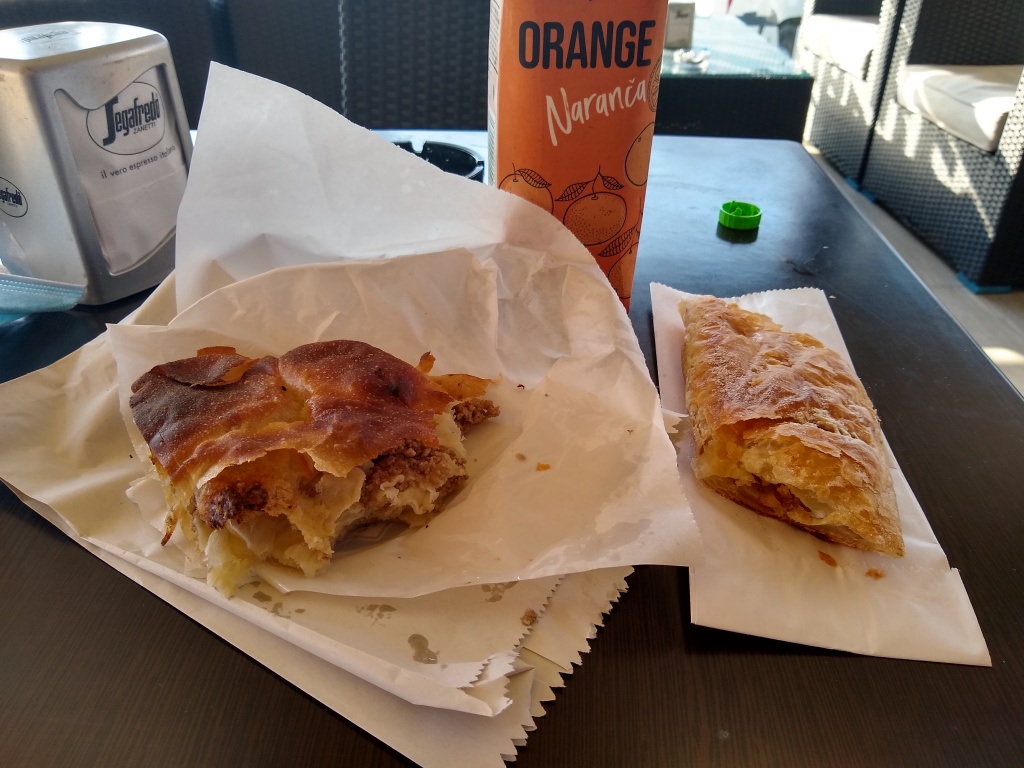
Bakeries all over Croatia are multi-purpose. They’re breakfast places, and early morning coffee shops, as well as serving desserts and breads. (This was also true in Iceland.) One breakfast staple is a flaky deep pie with either cheese or ground meat inside.
The main task for the day was for me to find a medical clinic and get a blood test that I usually have once a month. My doctor insisted. 🙂 The first clinic I visited could not do the test, but directed me to one that could.
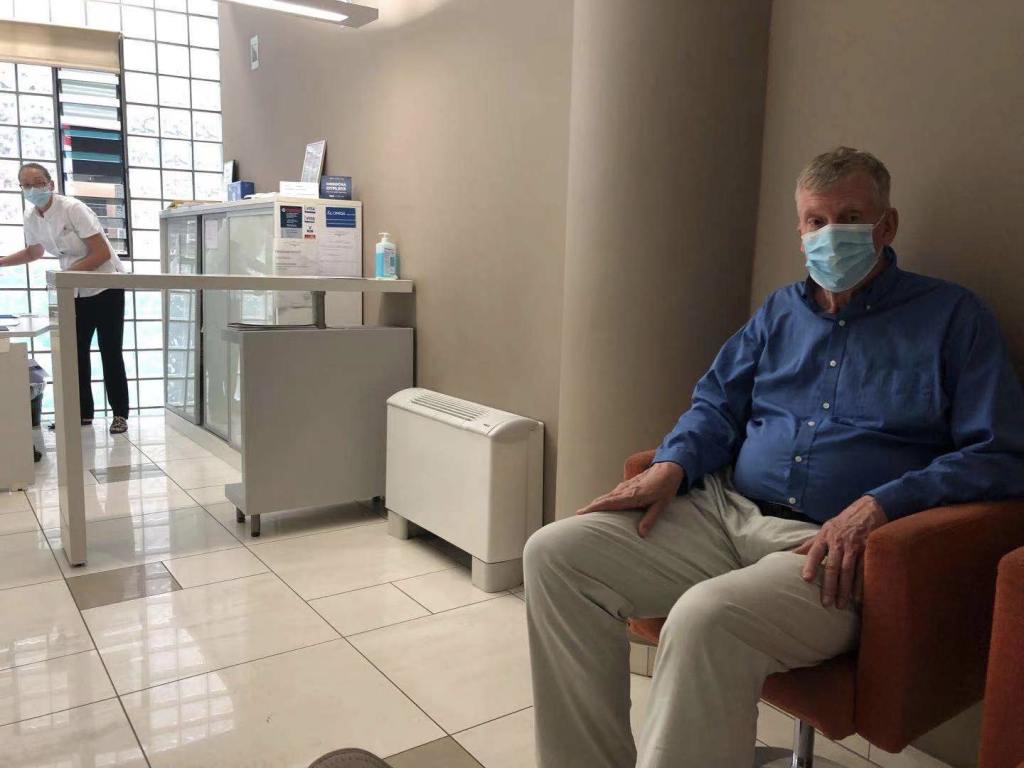
On the way to the second clinic, we passed a “pyroshop” claiming to sell “pirotehnika”. My head swum with fantasies of hundreds of new ways to make fire. But sadly, it was only selling sporting goods like bicycles and scuba masks.

When we reached the second clinic, I had to show my vaccination certificates again, and wait a bit, but the doctor doing the blood draw was very professional. The charge for the test was 65 kuna (= about $10.72). That’s the full price; I was a foreigner with no applicable health insurance. Results were emailed to me in a little under 2 hours, about the same time as the Express Lab in Fort Collins takes. Makes “socialized medicine” (= “affordable health care”) start to sound reasonable.
The only minor snag was that “prothrombin time” was abbreviated PV, not PT. Because the Croatian word for “time” is “vrijeme”, naturally. So “PT/INR” became “PV/INR”.
Zadar is the oldest continuously-inhabited Croatian city, going back further than just Roman times (when it was called Jadera). The easiest way to get to the Old Town was to walk further out the harbor and cross over on a foot bridge.

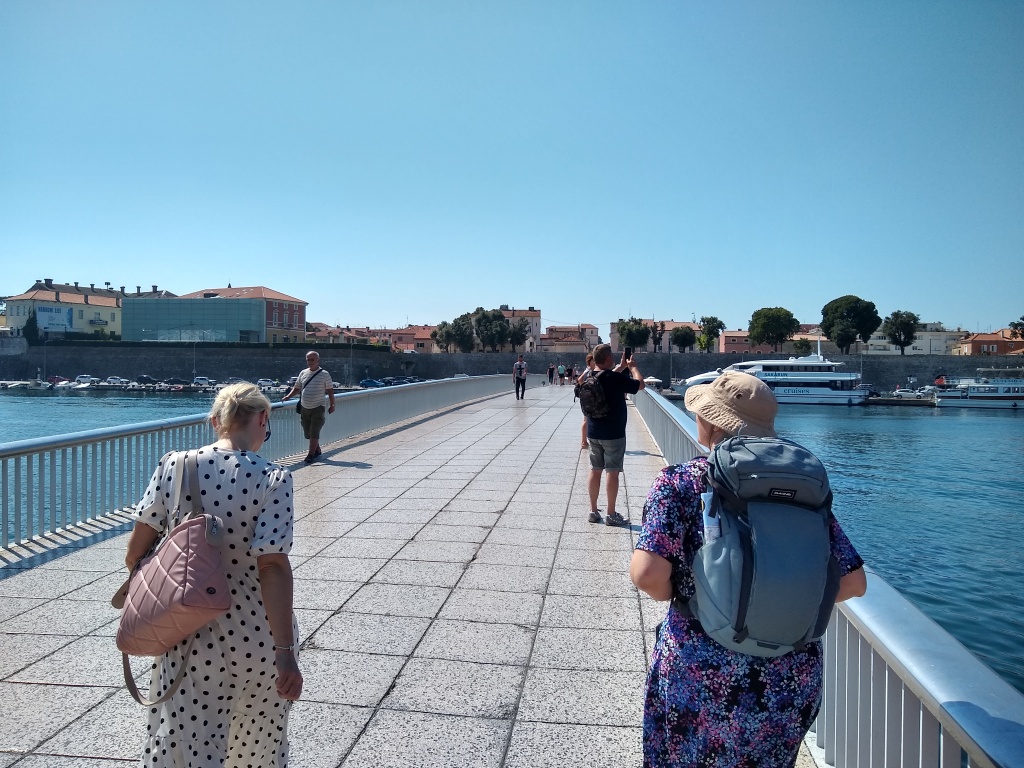
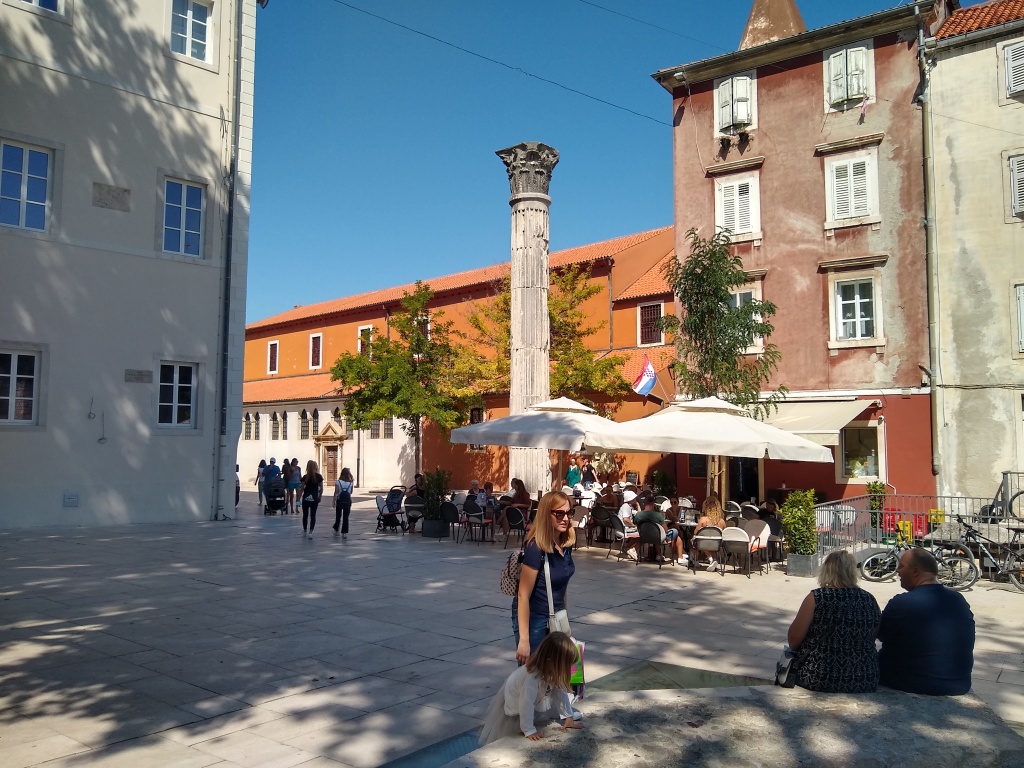
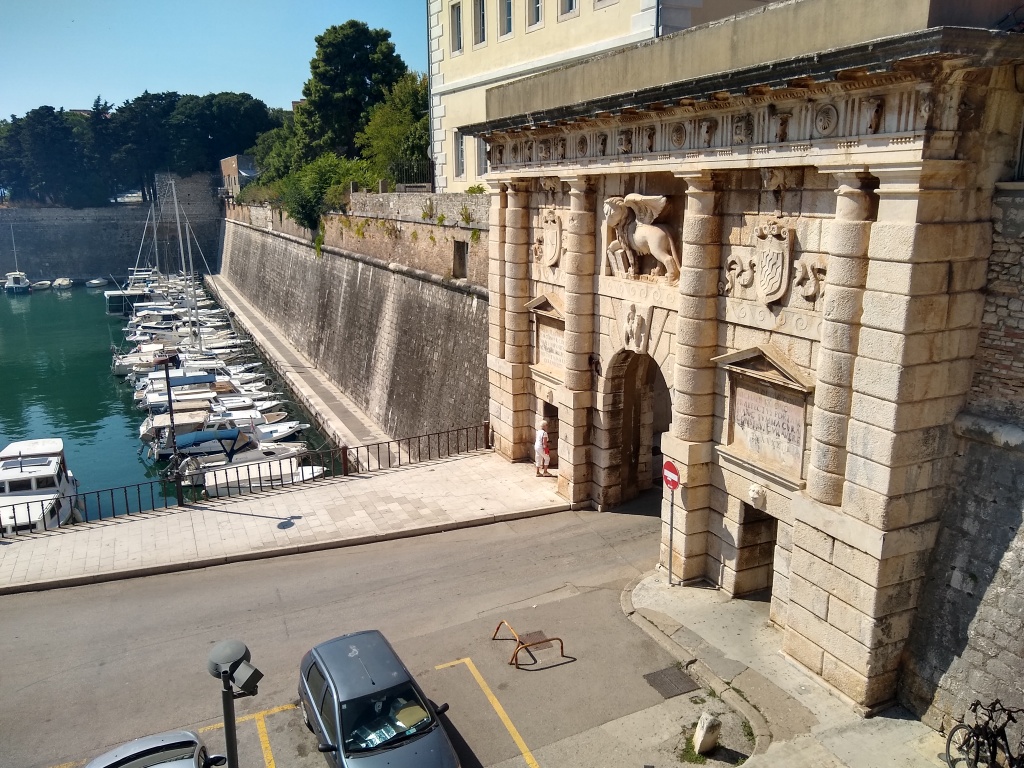

Finding lunch took a long time. We could have just eaten near where we were – there were at least 2 open restaurants – but Carol was fixated on a particular street-food restaurant, so we walked a kilometer to get there. But it wasn’t open yet, and there was nothing near it, so we ended up walking almost back to where we started, through sights we had already seen. I think we need to start taking that “bird in the hand” idea a bit more seriously.

Our main goal for the afternoon was the Museum Of Ancient Glass.
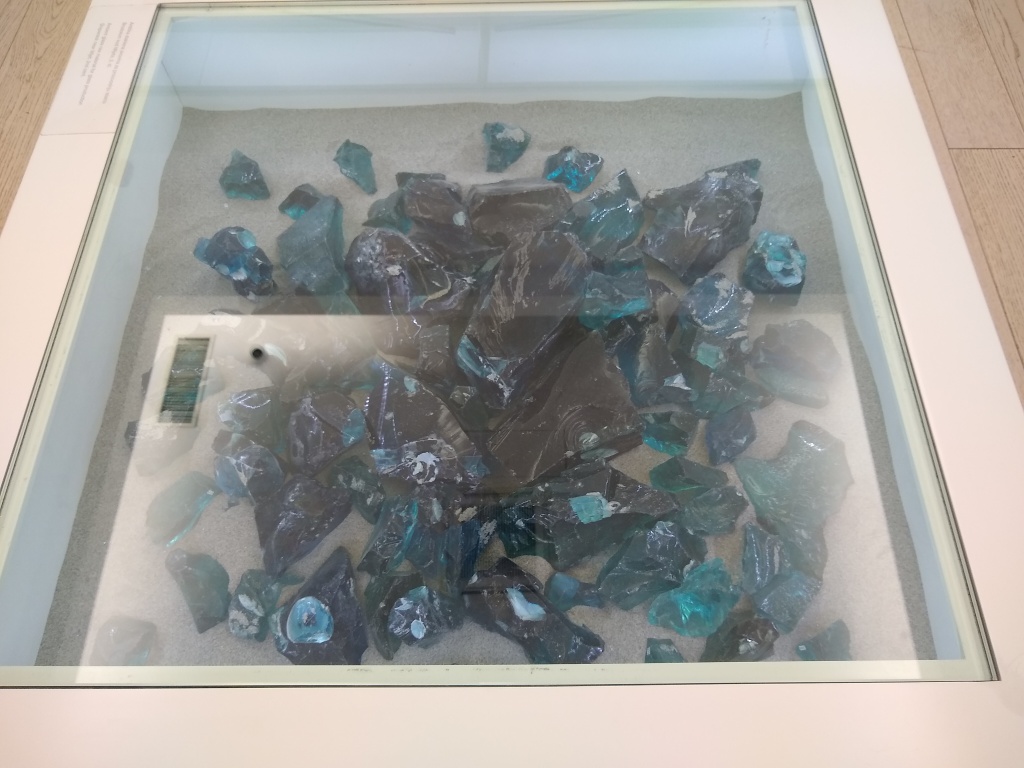
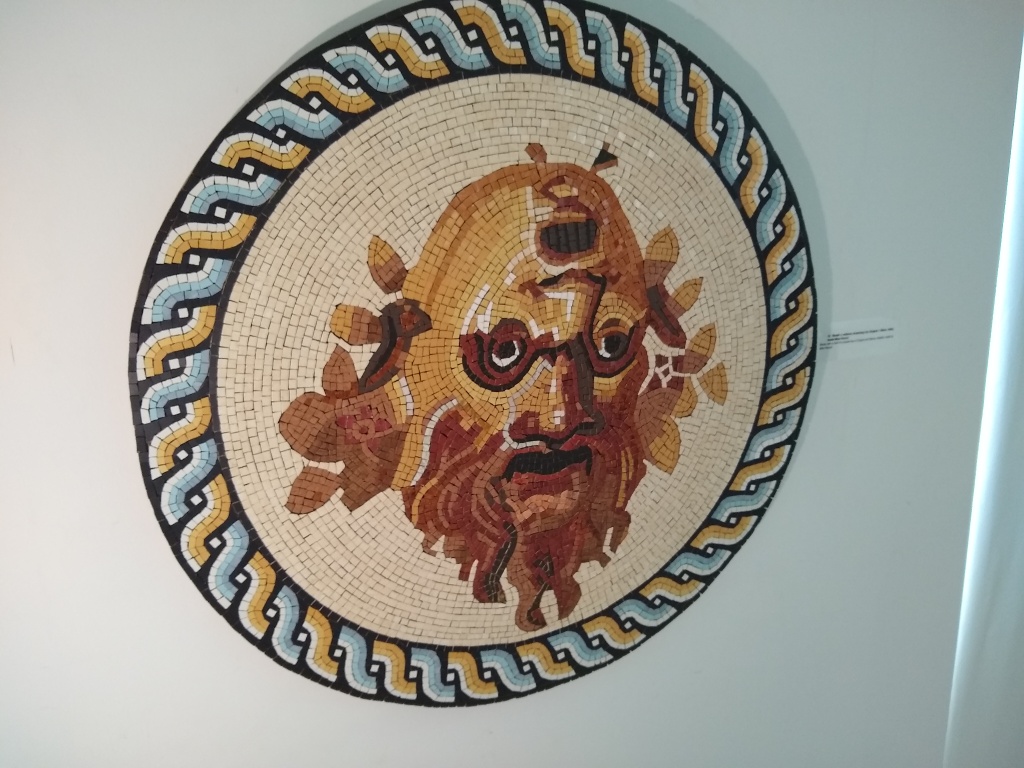
The theme of the main exhibit was originals and imitations.
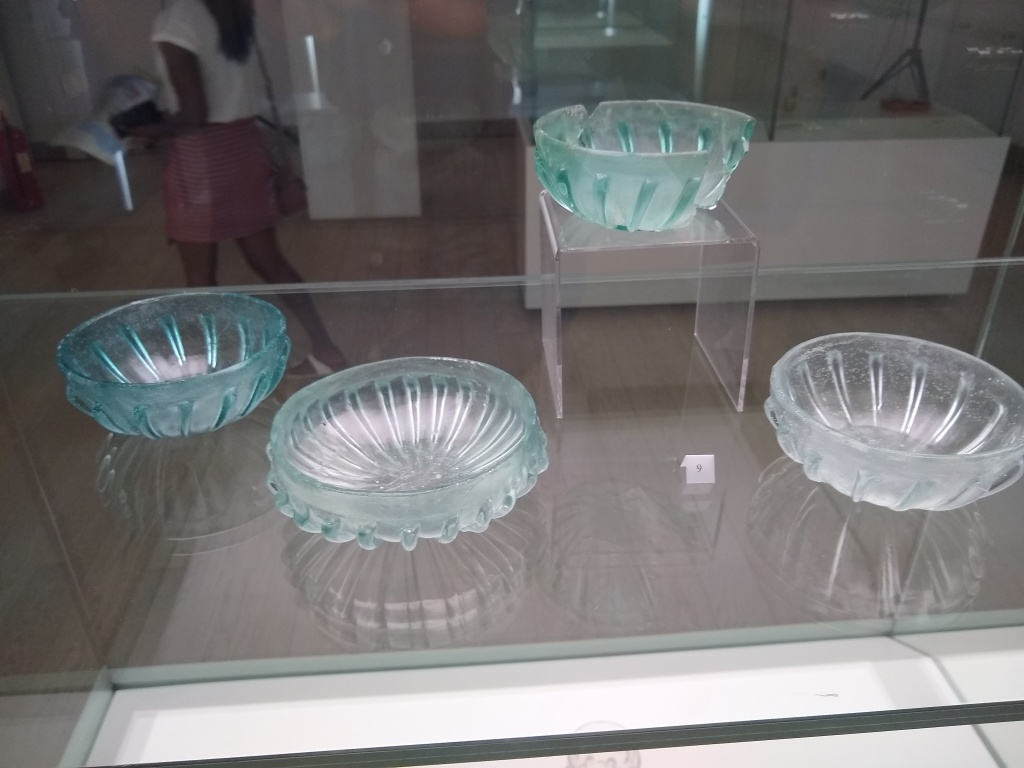


Some public benches in Zadar are for sitting, but some are for lying back and resting.
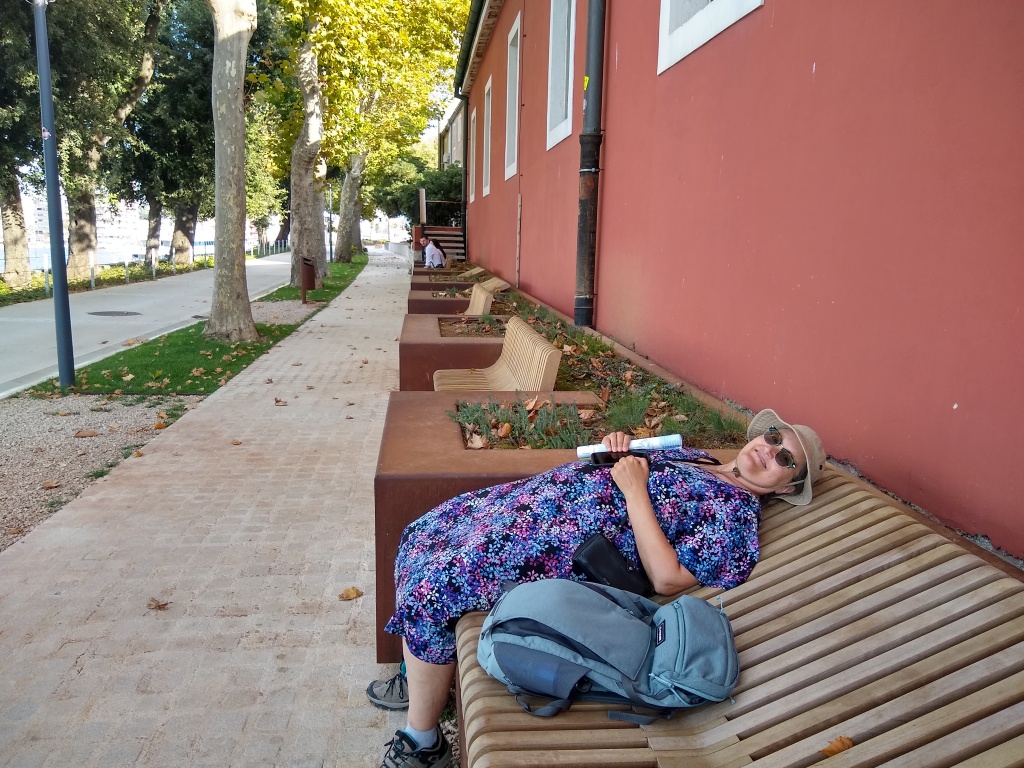


Around sunset, we went to listen to the Sea Organ and see the Greeting To The Sun.

